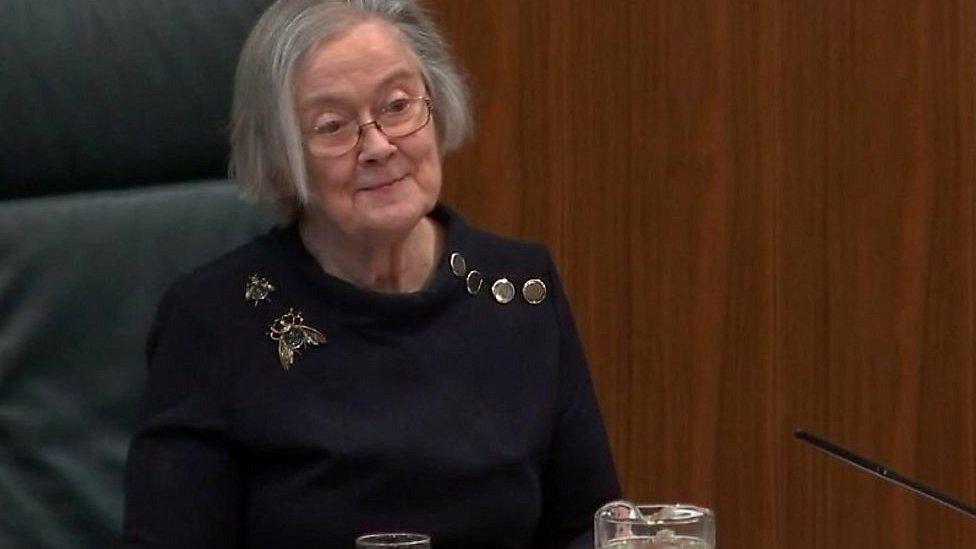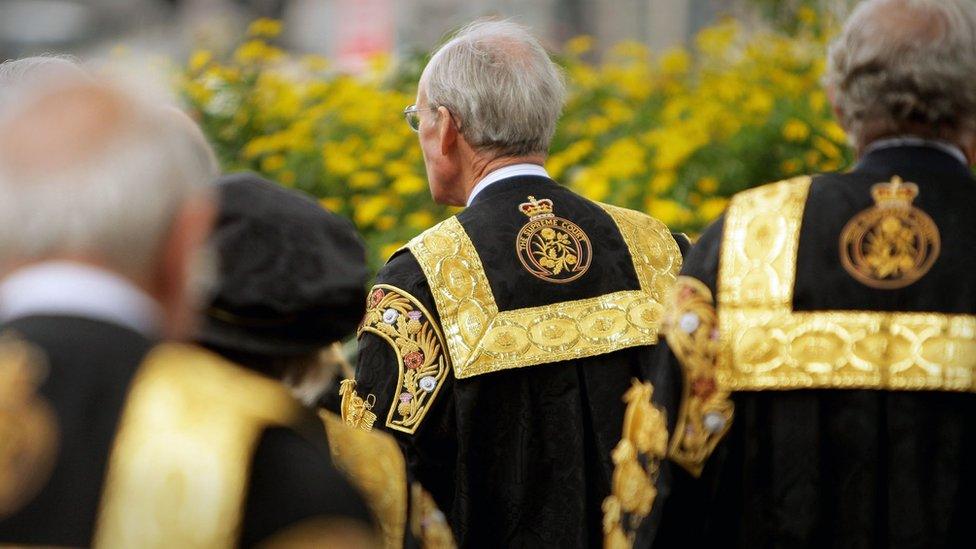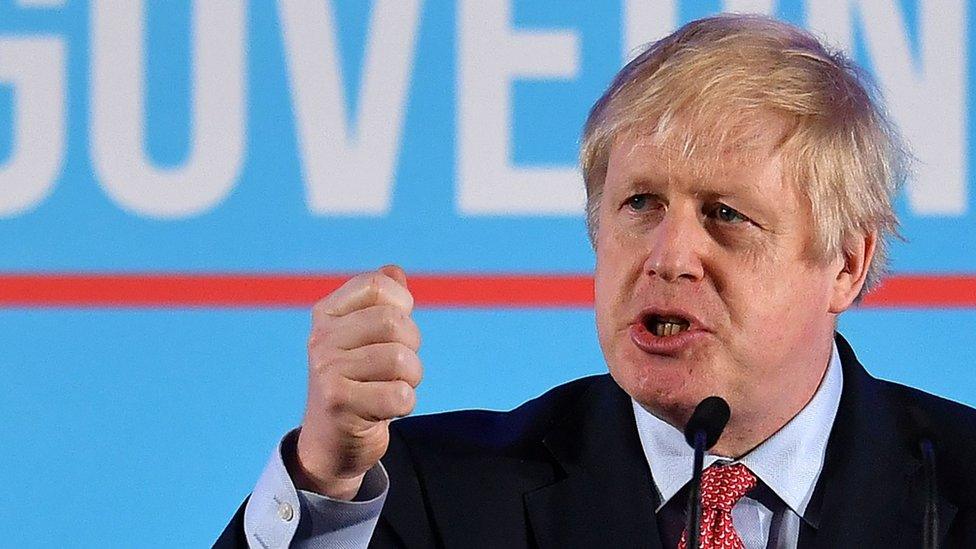Scaling back the Supreme Court
- Published

Baroness Hale says no-one wants the Supreme Court to assume the political role of its US counterpart
Changes to the working of the UK's Supreme Court are likely to lie at the heart of wide-ranging reforms of Britain's constitutional settlement.
A senior Whitehall source has told BBC Newsnight that the government wants to "unravel" some of the reforms introduced by Tony Blair more than a decade ago.
The reforms led to the creation of the Supreme Court and to the downgrading of the role of the lord chancellor, who used to be head of the judiciary in England and Wales.
The Queen's Speech confirmed that the government would deliver on its manifesto pledge to establish a Constitution, Democracy and Rights Commission.
Prime Minister Boris Johnson told MPs that the independent commission would "restore trust in our institutions and our democracy."
The Whitehall source told Newsnight that the commission, whose terms of reference will be set by the government, would look at:
Clipping the wings of the Supreme Court, which upset Downing Street in September when it ruled that Mr Johnson's prorogation of Parliament had been unlawful. The court could return to its old - and more modest role - as the appellate committee of the House of Lords. But it would still keep its home in Middlesex Guildhall in Westminster.
Enhancing the role of the lord chancellor, largely a ceremonial one since the Blair reforms. Only lawyers would be eligible for the post, whose holder sits in the cabinet as justice secretary. The commission may also look at the "strange joint role" the lord chancellor has with the lord chief justice, whose holder is now head of the judiciary in England and Wales.
The source told Newsnight: "This is the first look at the Blair settlement which David Cameron left alone. We need to look at unravelling that."
The government was encouraged this week when Baroness Hale, the Supreme Court's outgoing president, said that nobody wants the court to assume the political role of its US counterpart.
One Whitehall source said: "We are pleased with what Brenda Hale said. But these reforms may be a case of saving [the] Supreme Court from itself."
Suella Braverman, a former Brexit minister, said she hoped the reforms would restore the principle of "judicial deference".
She told Newsnight: "Traditionally in our constitutional arrangement in the UK, we have a principle called judicial deference, which means that our courts and our judges generally stay out of politics.
"There is a really good reason for that. They are not elected, they are not accountable to members of the public and it is for politicians to make political decisions not for judges.
"There has been a sense since the prorogation decision of the Supreme Court that our judges have been pulled into this political sphere. That has been worrying and concerning."

But Labour said the proposed changes had the "whiff of vengeance" after the Supreme Court ruled that the prime minister's prorogation of Parliament had been unlawful.
Nick Thomas-Symonds MP, the shadow solicitor general, said they have a "Trumpian feel".
"We think back to that decision of the UK Supreme Court on the issue of prorogation where it was found to be unlawful. This really does seem to have the whiff of vengeance about it," he said.
Nadhim Zahawi, the business minister, said the government would uphold the independence of the judiciary.
He told Newsnight: "Our judiciary is independent and the envy of the world, and that will remain sacrosanct. This is an independent commission to look at our democracy."
You can watch Newsnight on BBC Two at 22:30 on weekdays. Catch up on iPlayer, subscribe to the programme on YouTube, external and follow it on Twitter, external.
- Published13 December 2019

- Published13 December 2019
- Published13 December 2019

